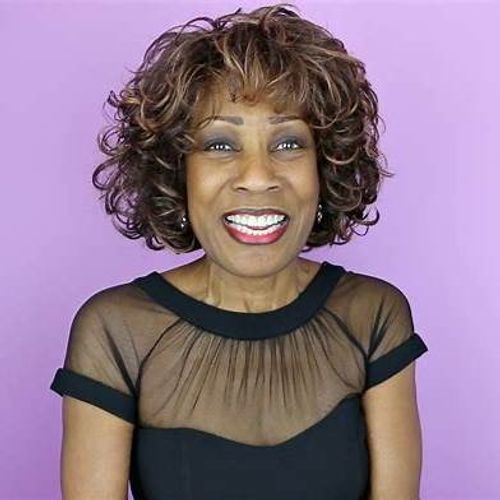The Great Front Porch Interview: "My Mother Should Have Been The Border Czar"
Wambui Bahati takes us on a delightful trip down memory lane with her heartwarming tale about her mother's quirky yet effective "Front Porch Interview" ritual. This entertaining yet insightful process wasn't just about welcoming newcomers; it was a full-on investigation that could put a detective to shame! Picture this: before anyone could step foot inside their home, Wambui's mom would fire off a barrage of personal questions, making sure she knew exactly who was who in the neighborhood. And if that wasn’t enough, she’d follow up with a trusted friend to confirm the newcomer’s credentials—talk about community vigilance! Wambui reflects on the charm and caution that characterized those neighborhood interactions, highlighting her mom's protective instincts and the vital role reputation played back in the day. So, grab your favorite drink, kick back, and join us as we reminisce about the good ol' days of neighborhood watch with a side of laughter!
The Front Porch Interview is more than just a quirky story from Wambui Bahati’s childhood; it’s an exploration of how community dynamics shape trust and relationships. Wambui recounts how her mother had a no-nonsense approach to welcoming new friends into their home, treating the front porch as a stage for a thorough investigation. The questions her mother fired off—everything from names to workplaces—were not just idle chit-chat; they were critical in establishing whether someone could be trusted in their home. This ritual was emblematic of a time when neighborhood interactions were steeped in caution and connection, and everyone had a role in vetting newcomers.
Wambui’s humorous anecdotes about her mother’s protective instincts highlight a broader theme of community vigilance. It wasn’t just about keeping their home safe; it was about ensuring that the community was a haven for everyone. The follow-up calls to friends for verification not only added layers to this vetting process but also illustrated a network of trust that once prevailed in neighborhoods. Wambui's nostalgic reflections offer us a window into a world where reputation was built on personal endorsements, and it makes us question how much of that community spirit still exists today. We chuckle at her mother’s antics but also feel a pang of loss for those close-knit connections that seem harder to find in our modern lives.
Takeaways:
- Wambui's mother had a unique way of vetting new visitors, dubbed the 'Front Porch Interview'.
- The vetting process involved asking personal questions to ensure community safety and connection.
- Even after the initial approval, Wambui's mother would keep tabs on newcomers for months.
- Trust in the community was built on personal connections and endorsements from neighbors.
- Wambui reflects on the importance of reputation and how it shaped neighborhood interactions.
- The episode highlights the blend of humor and heart in Wambui's nostalgic storytelling about her mother.
Transcript
The rule was that if my mama wasn't home, children couldn't come from the outside, come in our house to play with us.
Speaker A:Even when she was there.
Speaker A:My mother was very strict about who could come in and who could not come in.
Speaker A:My mother seemed to know everybody who all her children knew.
Speaker A:And if she recognized somebody that she had never seen before, oh, she was at that door with that foot across the doorway, and her hand would pull that door up to her back real quick, and she'd look down at a child and say, I never seen you before.
Speaker A:What's your name?
Speaker B:Mm.
Speaker A:What's your mama's name?
Speaker A:What's your daddy's name?
Speaker A:Where your mama work?
Speaker A:What kind of work your daddy do?
Speaker A:Where he work?
Speaker A:What church y'all go to?
Speaker A:Where y'all move here from?
Speaker B:Mmm.
Speaker A:Now, if my mother was satisfied with the answers that she had received, then she'd move her foot aside, back up the door, open the door wide, and you could come in.
Speaker A:But that doesn't mean the investigation was over.
Speaker A:Later on, she'd be on the phone.
Speaker A:Hello, Alice.
Speaker A:I got this girl over here.
Speaker B:Mm.
Speaker A:Say her name is Joyce Ditmore.
Speaker A:You know any Ditmores live over here on Martin Street?
Speaker A:Uh huh.
Speaker A:Oh.
Speaker A:Huh.
Speaker A:Yeah, she did say they were from South Carolina.
Speaker A:Oh, that's her grandmama that sang in the choir over here.
Speaker A:Providence Baptist.
Speaker A:Do all them beautiful solos.
Speaker A:That's her grandma.
Speaker A:Oh, well, God bless her.
Speaker B:Mm.
Speaker B:Mm.
Speaker A:Yeah, yeah, yeah.
Speaker A:She said her daddy was on down at the cigarette factory.
Speaker A:Uh huh What?
Speaker A:Uh huh.
Speaker A:Yeah, yeah, I heard about that.
Speaker A:That man they called Junji Bear.
Speaker A:Ginger Bear.
Speaker A:Yeah.
Speaker A:Didn't he do time?
Speaker A:He's still doing time.
Speaker A:That's her uncle.
Speaker A:Oh, Lord.
Speaker A:You know, I do remember seeing the name Ditmore.
Speaker A:I do remember them saying the name Ditmore in the paper when they wrote about him.
Speaker B:Mm.
Speaker A:That's that girl's uncle.
Speaker B:Mm, Mm, mm, mm.
Speaker A:You never know.
Speaker A:Well, I thank you, Alice.
Speaker A:Cause, you know, you can't be too careful.
Speaker A:You can't be too careful who you letting in your house.
Speaker A:That's what I always say.
Speaker B:Huh?
Speaker A:Okay.
Speaker A:All right.
Speaker A:I thank you, Alice.
Speaker A:I.
Speaker A:I knew that you would know.
Speaker A:I knew you would know.
Speaker A:Okay, then.
Speaker A:All right.
Speaker A:All right.
Speaker A:Bye.
Speaker A:Bye.
Speaker A:But even after the investigation was over, it didn't mean that you were safe.
Speaker A:Just because you passed the investigation the first day doesn't mean you're home safe.
Speaker A:My mother would keep inquiring about you for months to come.
Speaker A:And if she found something she didn't like, then she would let me know you were not to come back to our house no more.
Speaker A:My mother should have been the border resort.




